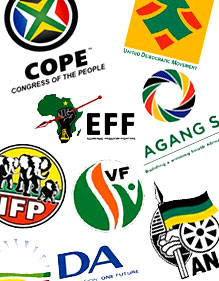|
Getting your Trinity Audio player ready...
|
 Dear Corruption Watch, I am still burning about the fact that people paid R3-million to sit at President Jacob Zuma's table at the ANC's 103rd anniversary celebrations. Isn't this brazen corruption?
Dear Corruption Watch, I am still burning about the fact that people paid R3-million to sit at President Jacob Zuma's table at the ANC's 103rd anniversary celebrations. Isn't this brazen corruption?
Meal Ticket
Dear Meal Ticket
There are no legal impediments to a fundraising event such as the one held by the ANC in Cape Town on January 9. Whether money donated at such an event would constitute corruption would depend on whether a causal link could be proved later between such donations and conduct prohibited by the Prevention and Combating of Corrupt Activities Act.
The gala dinner was actually more transparent than most South African political parties' fundraising efforts, because we know who gave what. But we have no idea, for example, how much companies had to fork out to be allowed into the ANC's corporate hospitality lounge the next day at Cape Town Stadium, or of any other donations made during that event. It will therefore be much harder to establish a causal link with any subsequent corruption in such circumstances.
All South African political parties are funded publicly and privately. However, unlike countries such as the UK and Germany, South Africa has no legislation or regulations governing the private funding of political parties.
This situation has been lamented by many commentators as one that creates fertile ground for corruption. It has also been argued that the lack of legislation and regulation has made it possible for narrow private interests, including corporations and wealthy individuals, to exercise undue influence over political parties at the expense of the wider public.
New legislation may be on the cards
As yet, political parties cannot be forced to divulge information about private funding.
We say "as yet", because the issue of secret funding is being considered by the Constitutional Court following a hearing on February 10 in which a public interest organisation, My Vote Counts, asked the court to order Parliament to pass legislation within 18 months that would force political parties to disclose their sources of private funding.
In support of this application, the organisation relied on section 32(2) of the Constitution, which gives members of the public the right to any information they need so they can exercise their rights, and argued that the public cannot fully exercise their right to vote without knowing how their political parties were funded.
In response, it was argued on behalf of the speaker and chairwoman of the National Council of Provinces that section 32(2) was given full effect by the Promotion of Access to Information Act and that My Vote Counts should first have approached the High Court to have that act declared unconstitutional.
The organisation disagreed, arguing, in essence, that the information act was not designed for this purpose, so Parliament had to pass new and specific legislation in this regard.
It is interesting to note that none of the 17 political parties cited as respondents in this matter made any submissions – despite the opposition of many South African political parties to divulging the details of private funding in the past, including the ANC and the DA.
So, we await the court's decision.
Please contact us at Corruption Watch (info@corruption watch.co.za) should you be interested in further information about the Constitutional Court case or in our earlier letters on party funding.
• This article was first published in Sunday Times: Business Times



